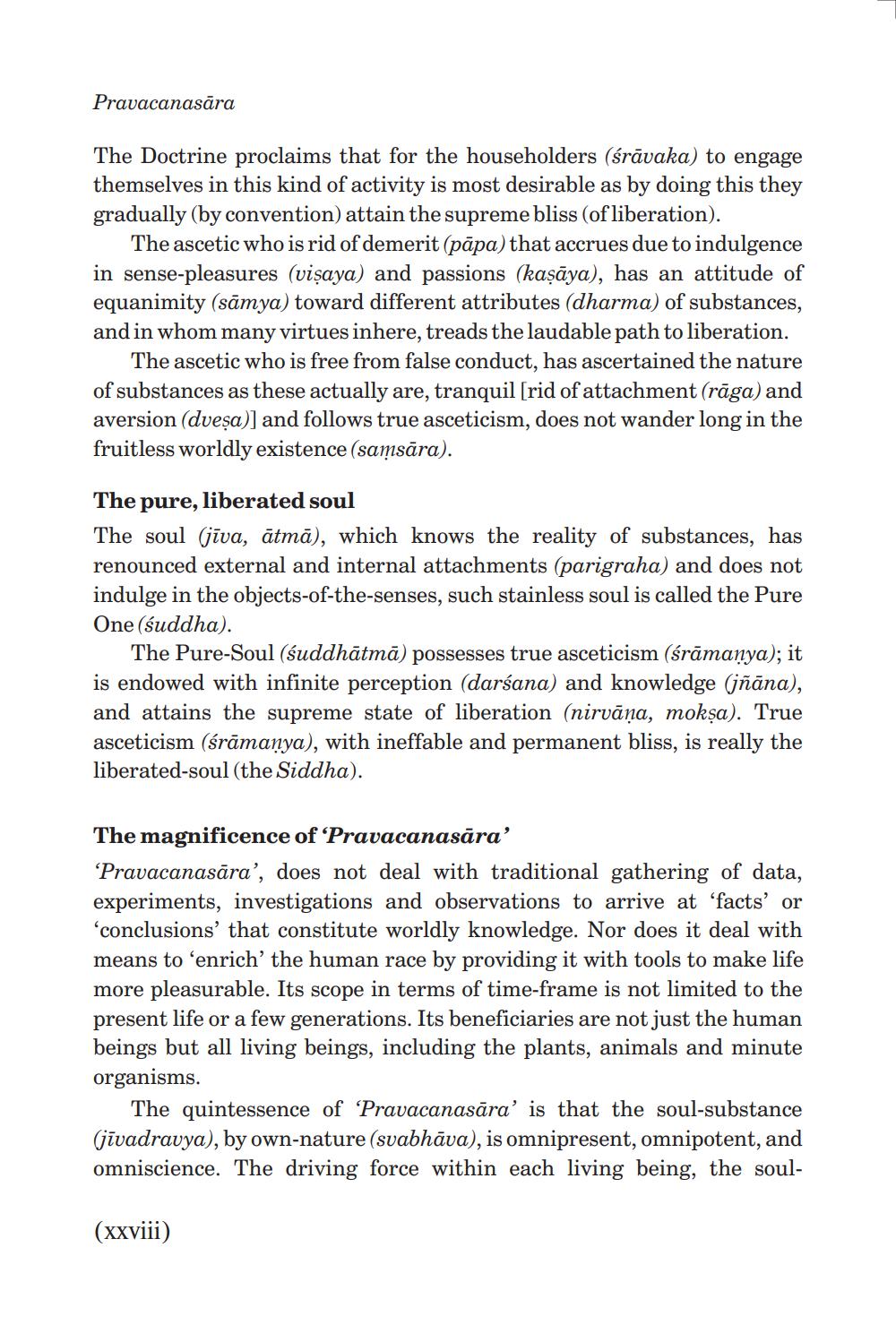________________
Pravacanasāra
The Doctrine proclaims that for the householders (śrāvaka) to engage themselves in this kind of activity is most desirable as by doing this they gradually (by convention) attain the supreme bliss (of liberation).
The ascetic who is rid of demerit (pāpa) that accrues due to indulgence in sense-pleasures (vişaya) and passions (kaşāya), has an attitude of equanimity (samya) toward different attributes (dharma) of substances, and in whom many virtues inhere, treads the laudable path to liberation.
The ascetic who is free from false conduct, has ascertained the nature of substances as these actually are, tranquil [rid of attachment (rāga) and aversion (dvesa)] and follows true asceticism, does not wander long in the fruitless worldly existence (samsāra).
The pure, liberated soul The soul (jīva, ātmā), which knows the reality of substances, has renounced external and internal attachments (parigraha) and does not indulge in the objects-of-the-senses, such stainless soul is called the Pure One (śuddha).
The Pure-Soul (suddhātmā) possesses true asceticism (śrāmanya); it is endowed with infinite perception (darśana) and knowledge (jñāna), and attains the supreme state of liberation (nirvāna, moksa). True asceticism (śrāmanya), with ineffable and permanent bliss, is really the liberated-soul (the Siddha).
The magnificence of 'Pravacanasāra' 'Pravacanasāra', does not deal with traditional gathering of data, experiments, investigations and observations to arrive at ‘facts' or 'conclusions' that constitute worldly knowledge. Nor does it deal with means to 'enrich' the human race by providing it with tools to make life more pleasurable. Its scope in terms of time-frame is not limited to the present life or a few generations. Its beneficiaries are not just the human beings but all living beings, including the plants, animals and minute organisms.
The quintessence of 'Pravacanasāra' is that the soul-substance (jīvadravya), by own-nature (svabhāva), is omnipresent, omnipotent, and omniscience. The driving force within each living being, the soul
(xxviii)




